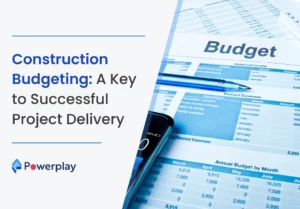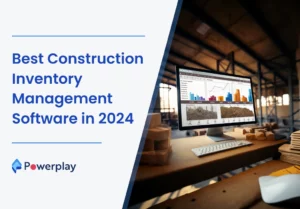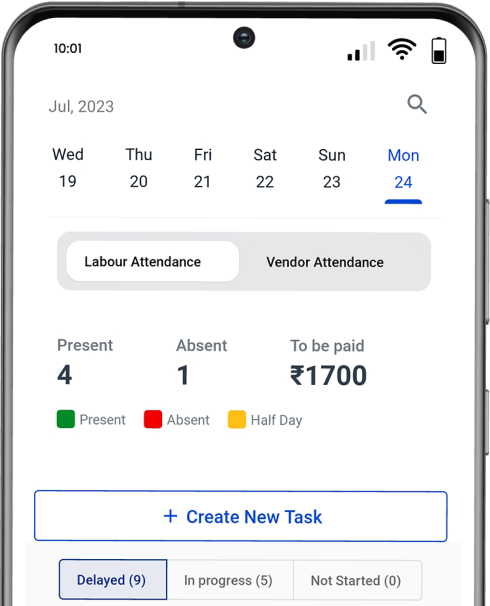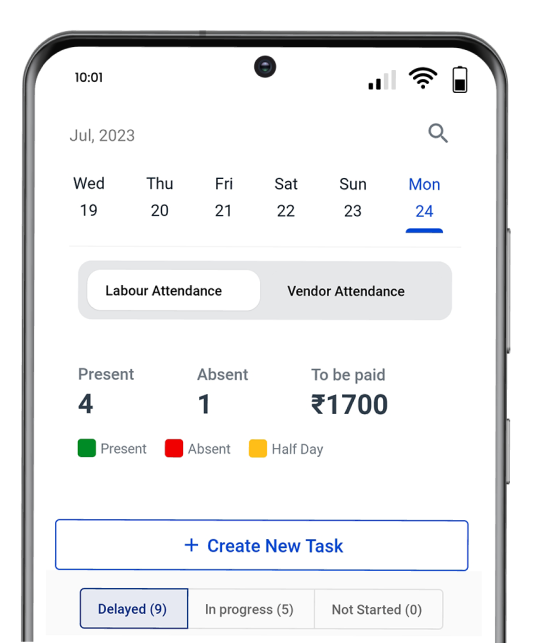How to hire good and trustworthy subcontractors?
-
Kumar Abhishek Anand
- October 23, 2023

General contractors spend many years building a team of subcontractors they can trust but it can be time-consuming to find the right subcontractors. Now, it is possible to locate the best subcontractors for construction now and have them work for you. Moreover, large construction companies often hire subcontractors to do a major portion of the work and hire very few trade specialists. They mostly hire many subcontractors to complete majority of the tasks for which they don’t have the time for or are unable to handle.
Subcontractors can be found in the same way as general contractors or other professionals such as doctors, dentists, and accountants. Talk to your neighbours and friends, ask around, and find out who’s working in your area. Don’t be afraid to ask if you see any work in your area. If you see work outside, introduce yourself and get a business card. If the work is indoors, you can knock on the front door and ask the owner about the progress of the job. Ask to take a look at the project.
You may have to dig deeper to find out the names of subcontractors if the job is large. Sometimes, you will have to ask the person who is performing the work, such as electrical, roofing, tile or plumbing.
You may have better luck with speciality suppliers. You can be sure to find a few good subcontractors, and they will likely introduce you to other people. These people work together often and know who does the best work. To get competitive bids, try to get at most two to three names per trade because not everyone is available at all times.
6 Ways to hire good and trustworthy subcontractors
Hiring good and trustworthy subcontractors can be hectic at times but you can always find unique ways to hire them. Here are six ways with which you can hire good subcontractors:
1. Follow word-of-mouth recommendations
2. Go through the contractor profile
3. Search on social media channels
4. Go with experience
5. Make sure to check their safety records
6. Check for license and registration
1. Follow word-of-mouth recommendations
Word of mouth is a good way to find great subcontractors if you are well-established in the region and have contacts in the industry. A subcontractor must bring something of value to the table if they are recommended by someone you trust.
Here’s the problem: Before you award a contract to any subcontractor, you must trust them. Let’s get into that a bit more.
Talk to your suppliers. They are an important source of information in the building industry, but they are often overlooked. They are familiar with every subcontractor and contractor, as well as all the materials and projects they are working on. They are likely to be familiar with almost every project in your locality, both past and present.
Ask them which trades they have the most success in, such as flooring, plumbing, and drywall. Ask the supplier if they have been in trouble with general contractors. This approach has the added benefit that the supplier won’t suggest subcontractors who don’t pay on time. Even if you don’t have the opportunity to find a subcontractor immediately, this step will most likely lead you to at least some leads. It will also help you build a relationship with your suppliers.
2. Go through the contractor works
You have an idea of how you can find the best subcontractor for you. Now it’s time to look deeper. A subcontractor cannot be hired from one person’s recommendations or an Instagram account. To find the perfect subcontractor, you must prequalify them.
You can’t take a subcontractor for granted, even if they have a credible recommendation. You have to dig in for minute details. Their Contractor Profile is a great place to begin this excavation.
The contractor works will give you information about the potential subcontractor. These profiles include information about payment practices and dispute history of construction companies, as well as reviews from businesses that have worked with them.
This is why it’s so important. Let’s recall the above situation where a subcontractor threatened to file a charge against non-payment. Let’s say the subcontractor files a mechanics liability. The charge attaches to the property and can cause serious headaches for the owner. It can cause delays in the project, make it difficult to secure financing and other problems. A mechanics charge could even force the project owner to sell his property so that the unpaid contractors can divide the proceeds.
The Contractor Profile or experience might reflect poor money management and underhanded treatment if the general contractors or project manager consulted it. The hiring party could have avoided the whole issue and kept the project clear of charges if that were the circumstances.
3. Search on social media channels
Nearly all businesses have a social media presence. These profiles often serve as a portfolio.
You should look through all photos that the subcontrator posted to their social pages, as well as read the comments and reviews. The goal is to hire professional attire. You will know everything you need if you are able to spot safety issues or unprofessional behaviour from their shots.
Another good thing is that subcontractors of medium- to large sizes are easy to reach via Social Media. They’ll respond quickly and, if necessary, point you in the right direction.
4. Go with experience
It is important to ensure that any subcontractor you are considering has the necessary experience to finish your project. Although it is acceptable to hire a younger contractor, you don’t want them working on the same project as you.
Ask for references and speak with them. Most often, these references will be either subcontractors or general contractors. However, you can ask about speaking to project owners to get a better picture. If they have one, you might also ask for their project portfolio.
5. Make sure to check their safety records
When things go wrong, general contractors are often the ones at fault. It’s a good idea to inquire about the safety records of subcontractors, as repeated violations could cost you.
Subcontractors of medium to large size will likely have safety records that you can look at, but it’s not unusual for smaller subcontractors not to. If that is the case, it’s a good idea to ask about their safety records during the interview. You can also ask other subcontractors for verification.
6. Check for license and registration
To ensure that your subcontractor is up to date, it’s important to be familiar with the registration and licensing requirements for your state before you hire them. Some states require subcontractors to have a license, while others may not. It all depends on the state where the project is located.
Unlicensed contractors are often cited by some states as a barrier. This is something you don’t want to have to learn the hard way.
Share
Kumar is a digital content professional with more than 2 years of experience in Blog writing, copywriting and scripting. His passion lies in the art of creating convincing content that plays a major role in converting leads for SAAS businesses.












